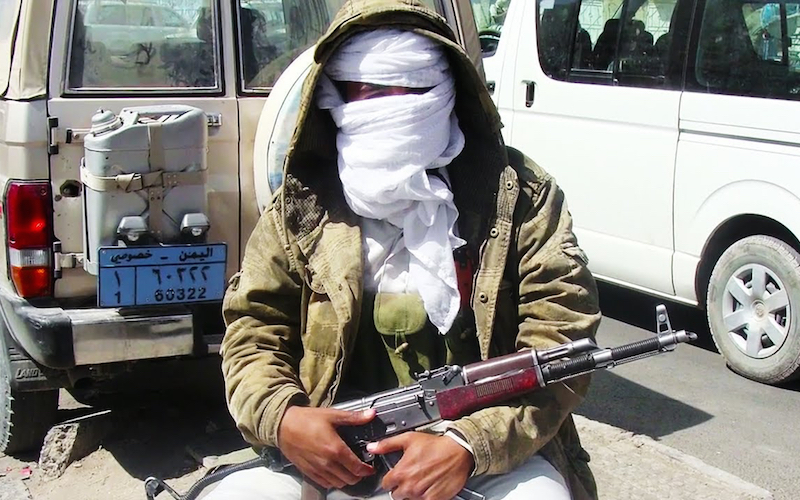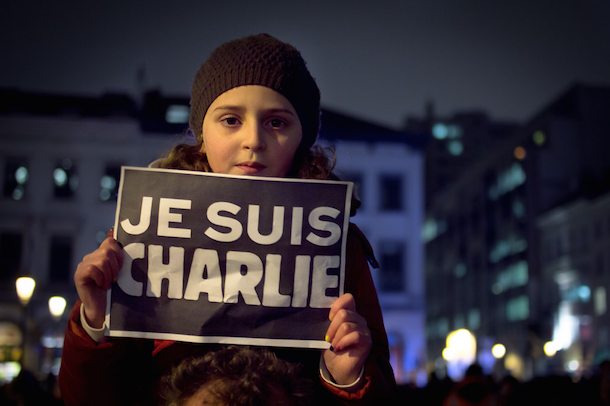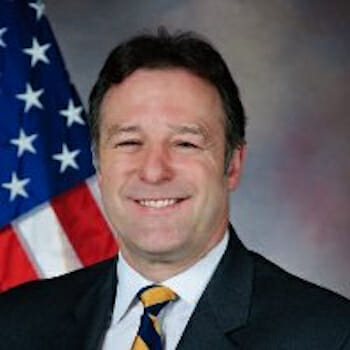
Yemen: A Meta-Mess
Yemenis wake up in the morning hearing the news of suicide bombings and attacks in their country and most recently of extremist elements from within their country acting violently internationally. The Houthis – linked to Iran – have seized ten cities and captured the Yemeni capital, Sana’a, continue their raids against their adversaries. Most recently they have attached the people of Arhab in north Yemen- branded as loyal to the Islah Party. The Houthis claim they are taking action against Yemeni corruption and against Al-Qaeda on the Arabian Peninsula, or AQAP.
The clash within extremism in Yemen has seen Houthis and AQAP in pitched battles. Drawing unilateral international condemnation, AQAP most recently claimed responsibility via the Associated Press for the attacks in Paris against the French satirical magazine Charlie Hedbo “as revenge for the honor” of the Prophet Muhammad. Stephane Charbonnier, editor of the magazine, was among the dead and had previously been on a hit list published in the group’s English-language magazine Inspire.
On December 3, 2014 at least nine people died during attacks on a strategic Houthi camp at the airport of the western Yemen’s port city of Hodiedah. On December 29th thirty-five people were butchered in a suicide attack at the cultural center in the city of Ibb in the middle of Yemen.
On January 2, 2015 an office of the Houthis was bombed killing six people and wounding thirty-one. One of the dead was a journalist who worked for a Houthi-affiliated television station, linking the nature of the attack conceptually at least to Paris. AQAP claimed responsibility. On January 5th thirty-seven people were murdered in an attack which targeted students sitting and waiting to be registered to join the Police College. AQAP has not claimed responsibility and has blamed the Houthis. These recent attacks in Yemen are over-shadowed by the tragic events in Paris.
Yemen’s domestic conflict is the ongoing battle between the extremist groups, AQAP and the Houthis, for control of the country. Many Yemeni view the Houthis as an Iranian proxy. Although the Houthis have achieved some success against AQAP specifically in Rada’a City. AQAP is providing services to the people within the territories it has captured and like Hezbollah it offers compulsory governance.

AQAP was behind the so-called underwear bombing of December 25th, 2009, the printer cartridge bombs of November 2010 and the second so-called upgraded underwear bomber of May 2012. AQAP has called for “lone wolf” attacks against America and Western Europe. Although linkage to Da’ish is foggy at best, AQAP has succeeded in putting Yemen back on the map for all the wrong reasons. The international response to the Paris attacks has yet to materialize, but the action may focus on AQAP based in Yemen and if not managed responsibly, the Yemen people may suffer again.
The internal clash within extremism in Yemen and the external clash with the west, means many Yemeni worry their country will end up like Iraq where sectarian conflict dominates and the international community tires of helping after a period of sustained intervention. Yemenis have lost hope in their own government’s ability to provide a safe and secure environment for them. The hopes and dreams from the 2011 revolution are evaporating as the Houthis and AQAP vie to take power. Despite the promise of Yemen’s National Dialogue Conference, passing a new draft Constitution and following the Peace and Partnership Agreement for Security, Yemen appeared ready to move forward and to be able to address both the Houthis and AQAP. But as the ink dries on a draft Constitution, Yemeni blood flows freely as warring parties wrestle violently for power. This does not include what might occur if the international community intervenes clumsily in Yemen to avenge Paris.
Yemen’s economy is in turmoil. Donors appear to have not honored their pledges for fear the money will fall into the wrong hands and Saudi Arabia has made its donations conditional on the withdrawal of the Houthis from the capital. The economic situation is worse due to the attacks on pipelines which reduces oil revenue which represents, according to some estimates, as much as 75% of Yemen’s income. Some companies have decided to close their offices or to freeze their activities and businesses are tending to invest outside the country.
The daunting list of converging domestic and international crises, poverty, illiteracy, reduced water supplies, southern secessionist ideology and a looming economic collapse, signal an unsure future for Yemen. In their view, the Yemenis have handed their future to ten countries and placed high expectations on their success. Now is not the time to desert Yemen. Yemen needs a coordinated strategic approach that includes enemy-centric military action against threats which must be synchronized with other approaches in order to create sustained solutions. The best approach to countering violent extremism is vested in a culturally savvy internal and educational approach. Whack-a-mole actions may cause attrition, but soft power holds the solutions.


